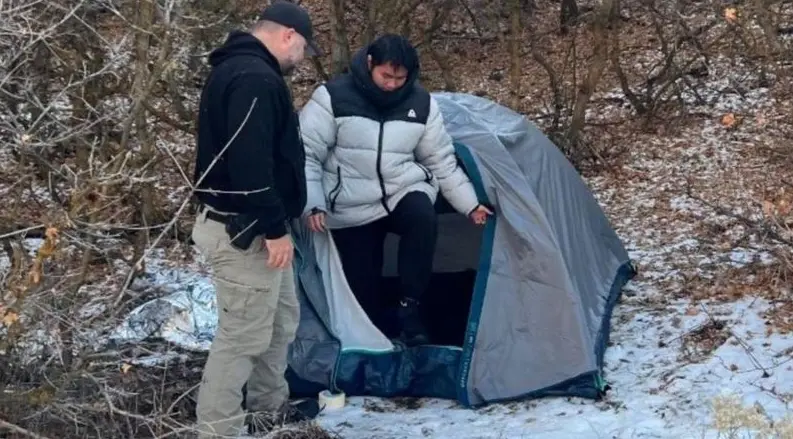Kai Zhuang, a Chinese exchange student, was found alive in the United States after his parents paid thousands of dollars in a “cyber kidnapping” scam.
Kai was found “very cold and scared” in a tent in rural Utah, Riverdale police said.
The 17-year-old teen is believed to have isolated himself on the mountain after being lured by cybercriminals.
Kai’s parents told school officials they had received a ransom demand and a photograph of their son indicating he had been kidnapped.
According to police, in cyber kidnapping, victims are convinced to isolate themselves and even have photographs taken to make it appear as if they are being held captive, even though the kidnappers are not present. Meanwhile, the victim is monitored via Facetime or Skype.
Both the victim and her relatives are convinced that the other will be harmed if they do not comply with the kidnappers’ demands.
According to local police, Kai’s parents were tricked into paying around US$80,000 into bank accounts in China.
Riverdale police said in a statement that Kai is one of many Chinese students who have been targeted by cyber kidnappers in the United States in recent times.
Police believe Kai had been being monitored by cybercriminals since Dec. 20, when he was spotted by officers in Provo, Utah, carrying camping equipment.
Those law enforcement officers arranged for his return to Riverdale – where he was living with a foster family – concerned for his safety. At the time, however, Kai did not mention any threats.
The cybersequestration modality
On December 28, the school the teenager was attending contacted the police, who in turn had been contacted by his parents from China.
Kai’s parents had told school officials that they had received a ransom demand and a photo of their son, indicating that he had been kidnapped.
Although the kidnappers were not with Kai, Utah police remained concerned for his safety because of December temperatures that pose the risk of “freezing to death overnight.”
Kai was found Sunday about 25 miles north of Riverdale, near Brigham City, in a tent “without a heat source.”
He had little food and water, a thermal blanket and a sleeping bag, as well as several phones, which police suspect were used to carry out the virtual kidnapping.
After his rescue, Kai was given a hypothermia check, asked for a “hot cheeseburger” and to speak to his family.
Numerous cases
According to police forces in several countries, Chinese students in the West are falling victim to cyber kidnappers.
In September 2023, the South Yorkshire Police Fraud Coordination Team in the UK issued a warning urging international students moving to Sheffield to be on the lookout for scammers.

Virtual kidnappers coerce scam victims into paying a ransom.
They said the scams were mainly targeting Chinese students.
In some cases, the victim receives a call from the scammer claiming to be from the Chinese embassy, Immigration or Customs Services, Chinese police or postal services.
They claim they are investigating an international crime and demand that the victim transfer large sums of money to an account in China.
South Yorkshire police said that criminals in some cases use threats to get the victim to cooperate.
In Australia, New South Wales Police warned in October 2023 that “virtual kidnapping” scams were becoming increasingly sophisticated and that many originate in mainland China.
In 2020, the NSW Police issued a warning about an elaborate phone scam targeting Chinese students after at least eight cases of “virtual kidnapping” were confirmed, with more than US$1,355,538 paid in ransom for kidnappings that never happened.
In August 2023, the Japan Times reported that some Chinese students in Japan had been blackmailed by scammers under similar circumstances.
In one case, the parents of a Chinese student paid US$42,300 to a bank account in China after receiving a photograph in which their daughter appeared to have been assaulted.
It later turned out that the student had received a threatening phone call from a person claiming to be a Chinese public security official.
The person told the student that a warrant had been issued for her arrest and that she should fake a fake kidnapping so that her parents would pay the money necessary for her to avoid arrest.
Police forces are urging Chinese international students to screen any calls they receive, verify any “official” requests at their local consulate, and report to police if they are a target of such a scam.

